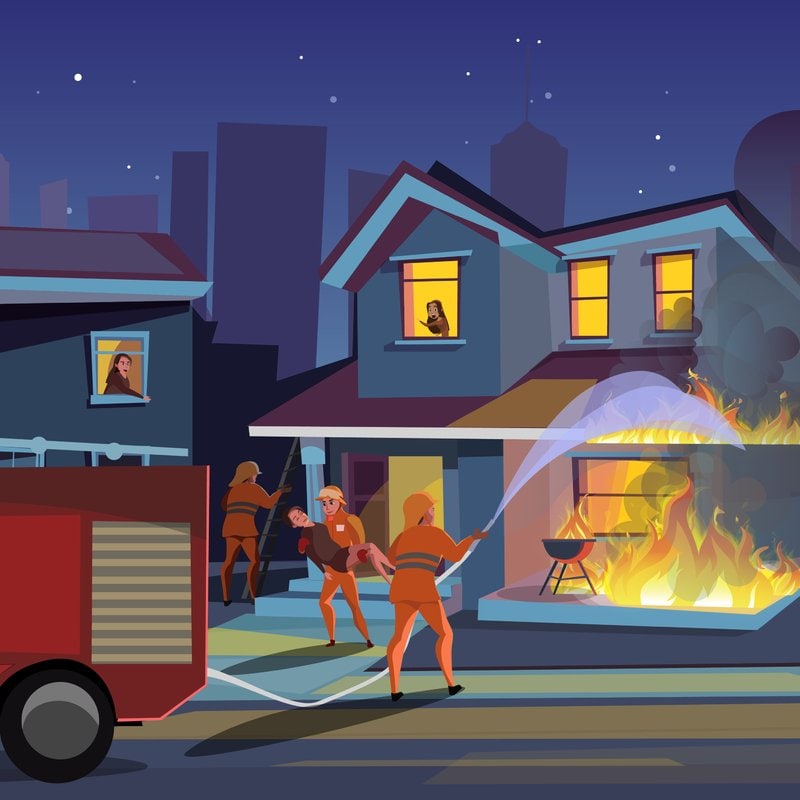7 Tips for Keeping Your Family Safe from Fires
Home fires can happen more often than you might expect. While not all of them lead to significant injury or severe property damage, even a small fire can put your loved ones at risk and cause substantial harm to your home. As Isaiah Ho MD, a family medicine physician, emphasizes, "Being prepared and taking preventive measures can make all the difference when it comes to protecting your family from the devastating effects of a fire."
Cooking is the leading cause of home fires, responsible for about half of all residential fires. Other common causes include heating equipment, electrical malfunctions, or unintentional actions like leaving candles unattended. To best safeguard your family, it’s crucial to take proactive steps to prevent fires and to be well-prepared to act quickly if one occurs.

Here’s how to prevent a fire in your home and protect your family if one occurs:
- Never leave cooking unattended. It only takes seconds for a fire to start when using the stove or oven, and if you’re not there to stop it, the fire can quickly grow.
- Never leave candles unattended. They can fall over or set fire to flammable items around them before anyone even notices.
- Keep flammable items away from heat sources. Curtains, towels, blankets, and other items that can easily catch fire should be kept far away from heaters, fireplaces, ovens/stoves, and lit candles.
- Check appliances, heating sources and electrical cords. Look for signs of damage such as frayed wires. Don’t use it if items overheat. Unplug items when not in use.
- Keep fire extinguishers in areas where fires are most likely to occur. This includes the kitchen and garage. If a small fire starts, don’t be afraid to use the fire extinguisher because it’s your best chance of stopping a fire before it gets too big. If the fire is large or is spreading, get out of the house and call 911 – don’t stay around to try to put it out yourself.
- Install smoke alarms. Having working smoke alarms in your home reduces the risk of dying in a fire. They give you an early warning if there’s a fire so you can get out quickly. Smoke alarms should be installed at every level of your home, including the basement. They should also be installed in or outside of every bedroom. Test the alarms monthly, change the batteries yearly and replace the alarms every 10 years or according to manufacturer’s instructions.
- Make a fire plan. Create a plan for how you and your family will get out of the house if there’s a fire and where you will meet. Come up with two ways to get out of every room in your house and draw a map so everyone can see it (windows may be one way out). Practice crawling low under smoke, checking doors for heat before opening them and using fire ladders if you have them. Learn how to stop, drop, and roll. Practice your fire plan twice a year, preferably once during the day and once at night.
To protect your family and home from the dangers of fire, it's crucial to stay vigilant and proactive. Start implementing these fire safety tips today and take the time to educate your family on the importance of fire prevention and preparedness. Review your fire safety measures regularly, test your smoke alarms, and practice your escape plan. A little preparation can make a significant difference in an emergency. Don’t wait until it’s too late.
For more tips on keeping your family healthy and safe, visit PIHHealth.org/Blog and explore Healthy Living online to read a wide range of wellness articles.